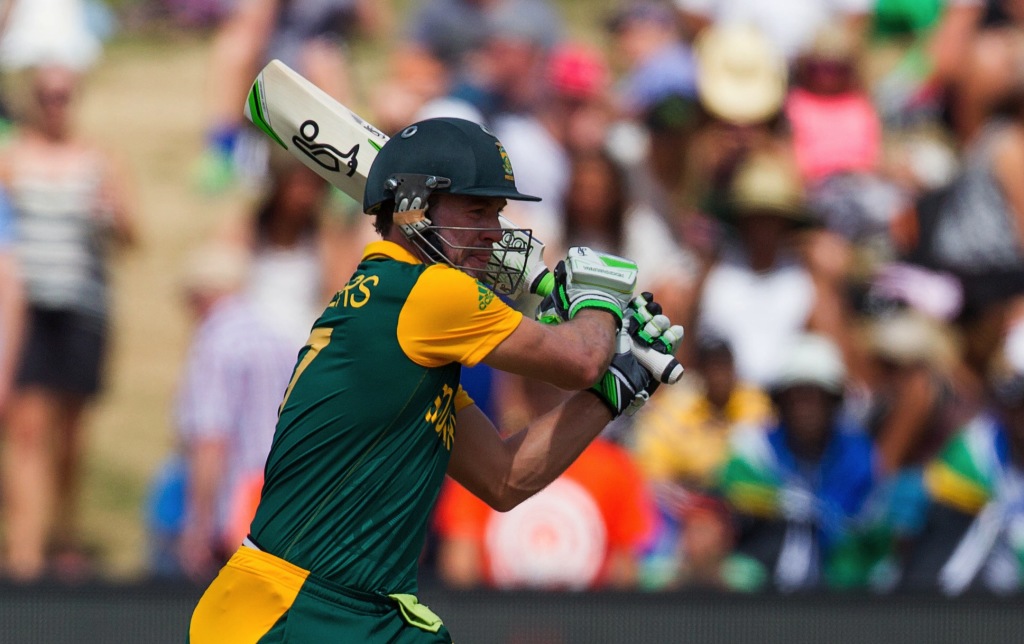The result as well as the quality of the Proteas’ performance in the World Cup semi-final was not entirely unexpected.
The South African ODI side are not the best in the world. Of course, we’ve known this for some time.
The Proteas have been woefully inconsistent in this format over the past four years. They were thrashed by Australia in Australia last November, and fared little better in the World Cup warm-up games against New Zealand and Sri Lanka.
There is a good reason why they weren’t handed the favourites tag in the buildup to the 2015 tournament. That reason has been made clearer and clearer as the competition has progressed. South Africa, in their current guise, are simply not good enough to win the World Cup.
What is the expectation of a team that loses four of their five matches in Australia just a month out from a World Cup tournament that will be staged in the same country? What is the expectation of a side that bullies Zimbabwe, Ireland, the West Indies, and the United Arab Emirates, but loses their two biggest pool games against India and Pakistan?
So many South Africans will be disappointed following the semi-final defeat to New Zealand. But does that failure equate to those of recent tournaments? In terms of form and personnel, was the class of 2015 ever in a position to go as far as the 2011 team?
I don’t think so, and my opinion is largely based on what I have witnessed in terms of South Africa’s performances in the lead up to, and at, the 2015 World Cup.
I can understand why AB de Villiers felt that 2015 would be different, that this team had a chance of claiming the elusive trophy. The best batsman in the world has been full value for his title at this tournament. He amassed 482 runs in eight matches, and the spirit and determination with which he played at this tournament will long be remembered.
Perhaps De Villiers realised the truth from an early stage, that’s the Proteas’ slim chances of winning the 2015 title hinged largely on his own individual performances. De Villiers strikes one as the type of character who would take on that challenge, who would aim to carry his team all the way. And to be fair, it was De Villiers’s brilliance that nearly earned South Africa a place in the World Cup final.
But these global tournaments are about more than individual contributions and one or two superhuman feats. The team that wins is usually exactly that, a team.
The batsmen complement each other, the bowlers complement each other, and there is a balance between batsmen and bowlers. It is something South Africa have struggled to get right in recent years, and is one of the primary reasons why they never stood a strong chance of winning the 2015 World Cup.
They have leaned too heavily of Hashim Amla and De Villiers in the past, and they have made the mistake of believing that their batting would compensate for a patent bowling weakness. All the talk in the buildup to the global tournament was about the much vaunted top six, the so called best lineup in the world. Interestingly, that top six would let the side down in the big pool matches, where the Proteas were forced to chase rather than set a target.
The most obvious weakness in South Africa’s game has been their bowling. Even with their best players available, the Proteas have failed to deliver a convincing showing with the ball week in and week out.
Their lack of depth in this department was exposed in the recent campaign. Kyle Abbott is the exception, and I would agree that his form warranted inclusion ahead of Vernon Philander in the semi-final.
That said, are Farhaan Behardien and Wayne Parnell really the best South Africa can do in terms of back-up? And if the answer to that question is yes, what does that say about the quality of ODI bowlers at South Africa’s disposal, now and in the near future?
The Proteas ticked a box when they beat Sri Lanka in the quarter-finals. They’ve shaken the monkey off their backs, and will go into the 2019 World Cup without the need to prove that they can win a play-off. What they will need to prove at that tournament is that they can succeed as a team.
This Sunday’s World Cup final promises to be cracker. It will take more than one big individual contribution to clinch the contest. The team that fires as a unit will take home the trophy.
South Africa’s coaches and selectors would do well to take note. If they take this lesson to heart, and proceed to build a team that is more balanced, then we can expect more of the Proteas ODI outfit in the years to come. But if the powers that be continue to steer South Africa down its current course, we shouldn’t expect any further progress in 2019.







